‘Organising a Double Defence on Zoom Is a Real Challenge’
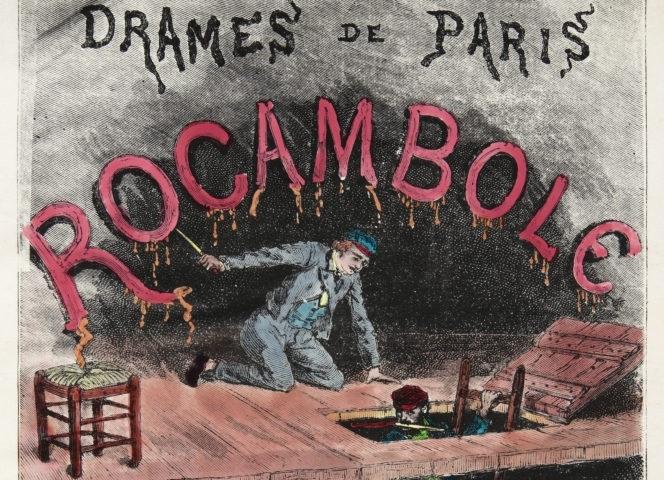
Alexey Lukashkin, a graduate of a cotutelle doctoral programme in philology arranged by HSE University and the Sorbonne, defended his doctoral thesis before the HSE University Dissertation Council in Philology and Linguistics. Along with a Russian Candidate of Sciences degree in Philology, he received a PhD. The HSE News Service spoke with Alexey about his studies and research.
My Bachelor’s degree is in journalism. I basically wanted to work with foreign languages, travel a lot, and interact with different people. I entered HSE University back when the Faculty of Political Science had a department of business and political journalism. I ended up there almost by accident — I went along with some friends to take internal exams and successfully passed them. During my studies, the department was restructured, so I ended up graduating from the Faculty of Communications, Media, and Design.
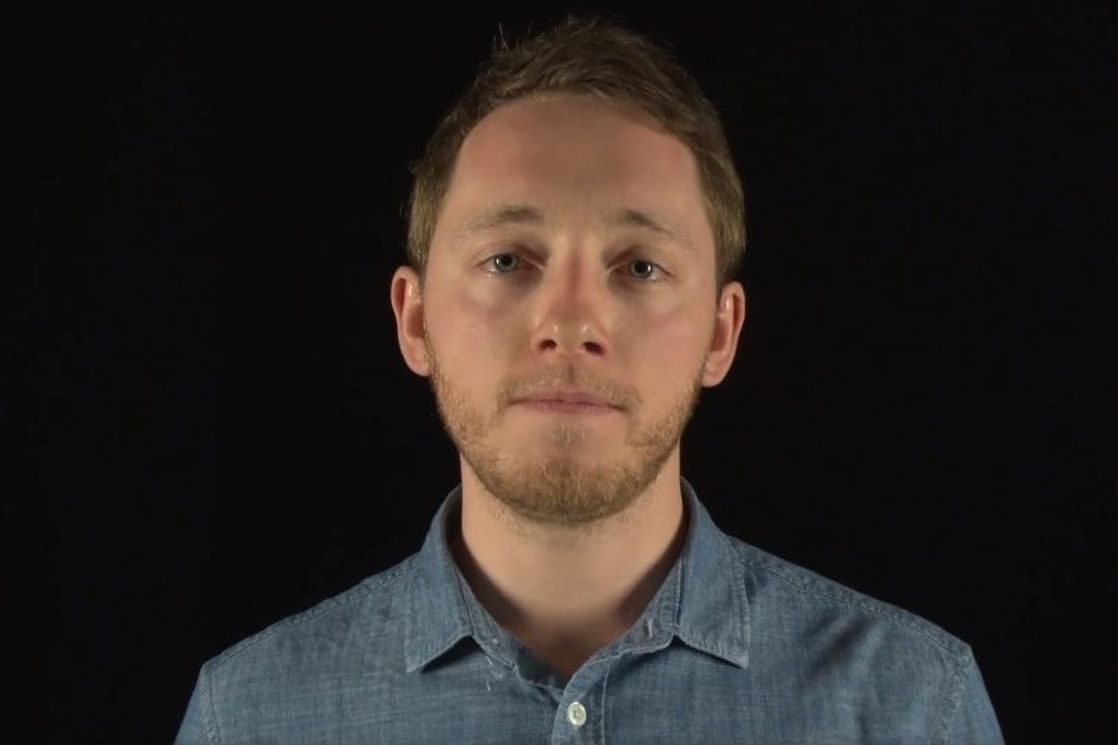
In the undergraduate programme at that time, students had a comprehensive course of Russian and foreign literature, and I wrote papers under the supervision of Professor Elena Penskaja. It all started with French literature—Balzac, Stendhal, and Hugo. For each topic, we tried to find a ‘journalistic dimension’ and turned to the study of the press. I started to learn French from zero in my second year; I got really into it, studied intensively, completed internships, and participated in competitions. I received a lot of support from Olga Samsonova—a wonderful French teacher.
After my Bachelor’s degree, I enrolled in the Master’s programme in Russian and Comparative Literature, and in the first semester of the second year, got to study at the Sorbonne. There I had a lot of work and I met a lot of teachers. I was able to make a lot of progress with my term paper, although many credits were not transferred to HSE on my return to Moscow and I had to take additional exams. After finishing the Master’s programme, I went on to the doctoral programme at the Sorbonne, believing it would give me more professional opportunities.
After that, both Elena Penskaja and members of my family persuaded me to apply for a Russian doctoral programme, because the Russian degree would certainly be useful at some point in the future. So, I became a doctoral student at HSE University. It was necessary to formalize an agreement for a double doctoral programme—it took a very long time to draft and verify the document with the administrations of both universities. I was a pioneer, and my agreement was subsequently used by other students as a model, which is very gratifying. There were times when the idea of a double thesis seemed too ambitious and even impossible to me.
Evgeny Kazartsev, Head of School of Philological Studies, HSE University
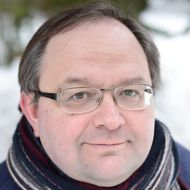
Alexey Lukashkin’s defence made a very good impression on me. It was a real intellectual feast that lasted several hours in two languages. Alexey’s example demonstrates the effectiveness of a continuous research track, where a student begins to explore a selected topic in a master’s programme and continues it in a doctoral programme. HSE University together with one of the universities at the Sorbonne are both important in his professional development, especially since it is always difficult to organise a double defence, and not every foreign university agrees to such a procedure.
The presented dissertation was written by a Russian scholar, based mainly on French material in such a professional manner, that it was perceived not only by the Russians, but also by our French colleagues as something remarkable. This confirms once again that the achievements of the postgraduate students of HSE University, our humanities postgraduates, are recognised at an international level, and the defence that has been achieved is undoubtedly the success of the HSE School of Philological Studies in its formative stage. It should not be forgotten, however, that it is the heir of the School of Philological Studies—in fact, of two philological departments—so today’s achievements are due to those who have developed our research activities at HSE University in recent decades.
I spent most of my studies in France—I worked there as a teacher, because I had no other source of income. Before the pandemic, I used to come to Moscow very often—every two or three months, sometimes for several weeks, and at that time, I usually worked in archives or libraries, or sat exams at HSE University. I must say that HSE University represented by Anastasia Vyrenkova, Academic Director of the Doctoral School of Philology, and all the teachers of the School of Philological Studies, has shown itself to be a very flexible entity, capable of adjusting, negotiating and compromising. I sat my exams remotely several times, which, of course, made my life a lot easier.
In general, postgraduate study formats in Russia and France are diametrically opposed. In Russia, a doctoral student is constantly required to take exams, to report on work progress, and there are strict rules for assessing results. In France, students are left to their own devices, everything happens on their own initiative: participation in conferences, publishing articles, attending seminars, and even meeting with their academic supervisors. Many graduate students at some point lose motivation and stop studying, and here, at least in the humanities, rescuing the drowning is the work of the drowning person themselves. I personally struck a very good balance between strict control and full independence.
My research focused on serial novels about the adventurer Rocambole, written by Ponson du Terrail, one of the most popular novelists in France and Russia in the 19th and early 20th centuries. I studied their transformation, their impact on Russian literature, as well as on cultural and political society, and examined their literary and socio-cultural reception in Russia. These novels were reflected in domestic behaviour, reinforced by epistolary and memoir testimonies, departmental documents, and the essays of Russian-speaking writers at the turn of the last century. Of particular interest was the connection between the novels and the crimes of the Jack of Hearts Club, a group of aristocratic Moscow swindlers who borrowed the title from one of the episodes of the Rocambole saga.
The project was a single work, but I presented the final text in two fully stand-alone versions—one in French and one in Russian. It is known that cotutelle doctoral students are sometimes allowed to present the text in full in one language and in detailed summary in the other, but this is very individual, and in my case neither the French nor the Russian side was prepared to make concessions. Formally, there was only one defence—it took place on Zoom, in Moscow, although at that moment I was in France, and its results were recognised by the French. For the first half an hour, I reported the results to my French colleagues, then to the committee for my dissertation at HSE University.
Organising a double defence on Zoom is a real challenge, and here I would like to thank Elena Penskaja, Andrey Golubkov, and Elena Mikhailova—the Manager of the Dissertation Council Coordination Unit. I discussed the procedure with them in detail and even contacted them in advance on Zoom to rehearse. I felt the defence went very smoothly, and everyone was able to join in, watch, listen, participate, and vote without any technical difficulties. Both the French and the Russian participants have adapted to the online format.
Andrey Golubkov, Professor, HSE University School of Philological Studies, member of the Dissertation Committee
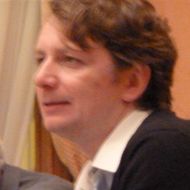
Having reviewed his Master’s thesis, I was familiar with the research that Alexey had been conducting during his Master’s degree. I enjoyed the subject matter very much and it felt familiar to me; there was a time when I was engaged in studying the Russian reception of French novels from the 18th century about Mélusine. Going forward, I continued to watch as Alexey expanded it for two works, each created according to different canons – French and Russian.
I was happy to join the Dissertation Committee at HSE University, as I find everything about Russian-French relations and Russian-French cultural transfer very interesting. The Committee was headed by Kirill Chekalov, a recognised specialist in mass literature, who acted in his books as an advocate of mass literature and fiction as a worthy research subject. The Committee included Svetlana Cecovic, Galina Zykova, Ewa Bérard, all of whom are recognised experts in French and Russian literature. It was with as much joy that I accepted the offer to head the French Committee, since the two defences took turns, and many members of the Russian Committee were simultaneously members of the French Committee.
Alexey is a graduate of a double doctoral programme, and this is a striking example of academic globalism in a good sense, an opportunity to tailor one study to suit two different scholarly rhetorical traditions. In fact, Alexey also became an expert on modern comparative studies, in the centre of which sits the scholarly discourse itself. The uniqueness of this format lies not only in the potential of the practical application of two diplomas, but also in the fact that a graduate student has declared himself as a researcher in two cultures at once.
Of course, the most obvious drawback is the inability to speak in person and celebrate such an important event with colleagues. Long ago, in the ‘pre-Covid era’, I imagined that the French professors would come to Moscow, where, of course, they would be warmly greeted, meet my teachers from HSE University, and see the city. However, everyone had to connect from home and I can’t complain about that, because it’s better than having the defence rescheduled.
In the future, I would like to get experience teaching at the university level, so defending my thesis was a necessary step. Now, especially in the current context, my priority is to seek stability and support, to build my adult life on that foundation.
Elena Penskaja, Tenured Professor, HSE University
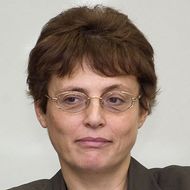
Alexey and I have come a long way together. It started in the beginning years of his undergraduate degree, when there was neither a Faculty of Humanities nor a Faculty of Philology, just the Department of Literature in the Faculty of Business and Political Journalism. Alexey first developed an interest in French novels, then French language, culture, and history. He began learning the language as a novice, and it was amazing to watch his passion, momentum, and progress. It was natural for him to move to the newly established Faculty of Philology — to enrol in the Master’s programme in Comparative Studies, where he began work on his future dissertation. And then he progressed to the doctoral programme. Alexey was fascinated by the topic, he found new dimensions in it. Last year, for example, he made a presentation at the international conference in Trier on ‘”Rocambole” in Bulgakov’s Theatrical Albums’ (based on the materials of the digital project ‘Autograph’, in which he participated).
It is very important to me that Alexey worked at the intersection of cultures, French and Russian, and used various methodological tools—from the sociology of literature to hermeneutic textual analysis—which helped him for the first time not only to explore a series of adventure novels by Ponson du Terrail, but also to draw on entire layers of sources — epistolary, memoir, literary, judicial chronicles, newspapers and magazines, archival materials, translations – and to find curious aspects of Rocambole, not only in Russian literature and journalism, but also in everyday life, to show how novel patterns of behaviour are assimilated by society and projected onto political situations, especially in the last third of the 19th and early in the 20th century, persisting for a long time in readers’ lives and historical memory. The vitality of these literary matrices, discovered by the ‘Russian Rocambole’, is confirmed by the adaptation of adventurous plots, to both theatre and cinema. But this is already a new perspective, set out in the thesis.
See also:
Zaruhi Hakobyan Shortlisted for HSE Alumni Awards
Zaruhi Hakobyan, master’s graduate of the HSE University Faculty of Economic Sciences and research scientist at the University of Luxembourg, is involved not only in research but also in organising academic events for young scientists and students. As a foreign graduate of HSE University, Zaruhi was nominated for the HSE Alumni Awards ‘for her tireless enthusiasm in popularising economic science, teaching, and research at the international level’ and made the shortlist.
‘Studying at HSE Was a Chance for Me to Get to Know Some Supportive Seniors, Knowledgeable Professors, and Wonderful Friends’
On August 4, 2023, a pre-defence of the thesis on ‘Refugee-Host Community Conflict over Assimilation, Integration, and State Legitimacy: The Case of Rohingyas in Bangladesh’ by Md. Reza Habib will be held at HSE University. The preliminary defence will take place at a joint meeting of the HSE School of Sociology and the International Laboratory for Social Integration Research. Md. Reza Habib shared his experience of studying and preparing his PhD with the HSE News Service.
‘At HSE University, We Receive Substantial Support for Our Research’
Wenrui Zhang, from China, is a recent graduate of theMaster’s in Economics and Economic Policy at the HSE UniversityFaculty of Economic Sciences. Having successfully defended his master’s thesis on the impact of COVID-19 on the incomes of vulnerable groups, Wenrui has set his sights on publishing his research and enrolling in adoctoral programme at the university. The HSE News Service interviewed Wenrui about his achievements so far and his goals for the future, and also spoke to Prof.Elena Kotyrlo, his academic supervisor.
‘I Hope to Make Meaningful Contributions to the Academic Community’
Why do international students at HSE University decide to pursue a career in academia? What fields in economics are relevant to PhD students? Richard Asiamah from Ghana and Alesya Bukreeva from Uzbekistan are current master’s students at the Faculty of Economic Sciences, but have already received scholarships from the faculty to continue their studies as doctoral students at the university. Below, they share their experiences, while Denis Melnik, Academic Director of the Doctoral School of Economics, suggests some tips for the application process.
1,700 International Participants Named Winners of Open Doors International Olympiad
On March 16, the results of the Open Doors International Olympiad for master’s and doctoral applicants were announced. The competition is organised by the Association of Global Universities with the support of the Ministry of Education and Science of Russia and the Federal Agency for the Commonwealth of Independent States Affairs, Compatriots Living Abroad, and International Humanitarian Cooperation (Rossotrudnichestvo). HSE University is one of the Olympiad’s organisers and the site of its distributed project office.
‘My PhD Taught Me about Life, Professionalism, Research, and Controlling My Emotions’
Wai Yan Phyo Naing first came to HSE University from Myanmar to enrol in a master’s programme at the Faculty of World Economy and World Affairs in 2015. After graduation, he decided to pursue a PhD at the Doctoral School of International and Regional Studies. On February 16, 2023, he successfully defended his dissertation on ‘Evolution of Myanmar’s Policy Towards China (1988–2020)’.
‘Working in Academia Is My Lifelong Desire’
Majid Sohrabi is a 28 year-old student from Iran currently enrolled in a doctoral programme at the HSE University Faculty of Computer Science. Before starting his PhD, he graduated with honours from the university’s Master of Data Science programme. In addition to studying, he also works as an assistant at the School of Data Analysis and Artificial Intelligence and a research assistant at the Laboratory for Models and Methods of Computational Pragmatics.
‘HSE University Gives You Everything You Need to Manage the Research Process’
Ion Frecautan chose to pursue his doctoral studies at HSE University because of its reputation as a leading research university and its extensive academic infrastructure. With the latest enrolment campaign for doctoral schools now underway, we spoke to Ion about his green finance research at the Faculty of Economic Sciences, his activities as a lecturer, and more.
Graduate Admissions Webinars: PhD Programme in Economics
On February 1, 2023, HSE University will open admissions to its doctoral schools. The Doctoral School of Economics has held a webinar for prospective students, which attracted participants from various parts of the world. Materials and feedback from the webinar, as well as information on applications, are now available on the Faculty of Economic Sciences website.
Over 56,000 Participants from 196 Countries Registered for Open Doors: Russian Scholarship Project
The first stage of the Open Doors: Russian Scholarship Project for prospective master’s and doctoral students has concluded. The winners of the competition get an opportunity to study at Russian universities for free. HSE University is among the most popular universities on the project.


